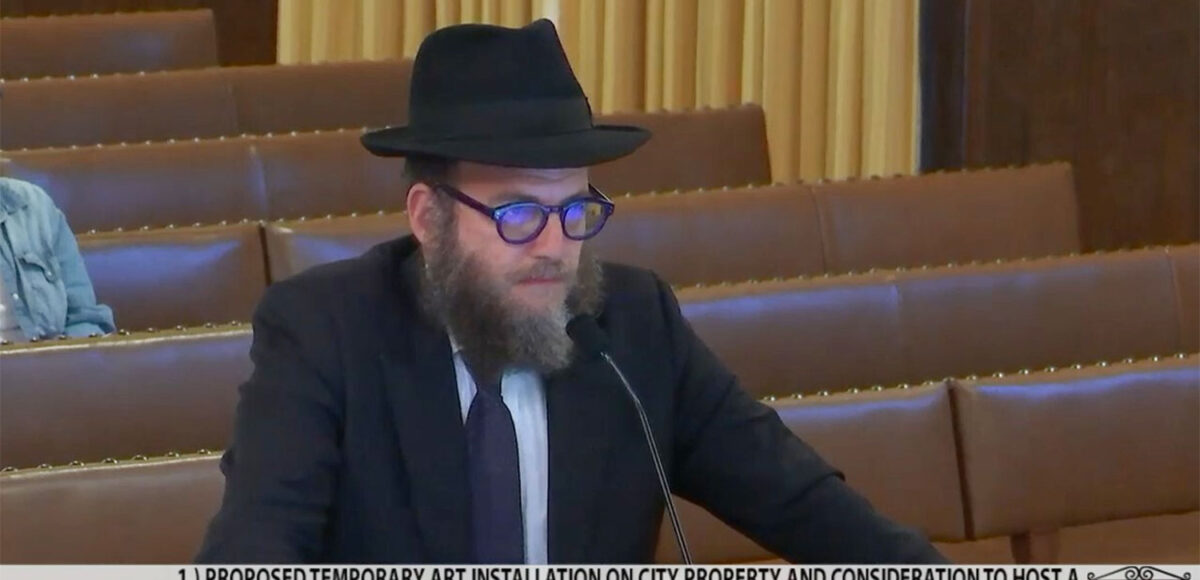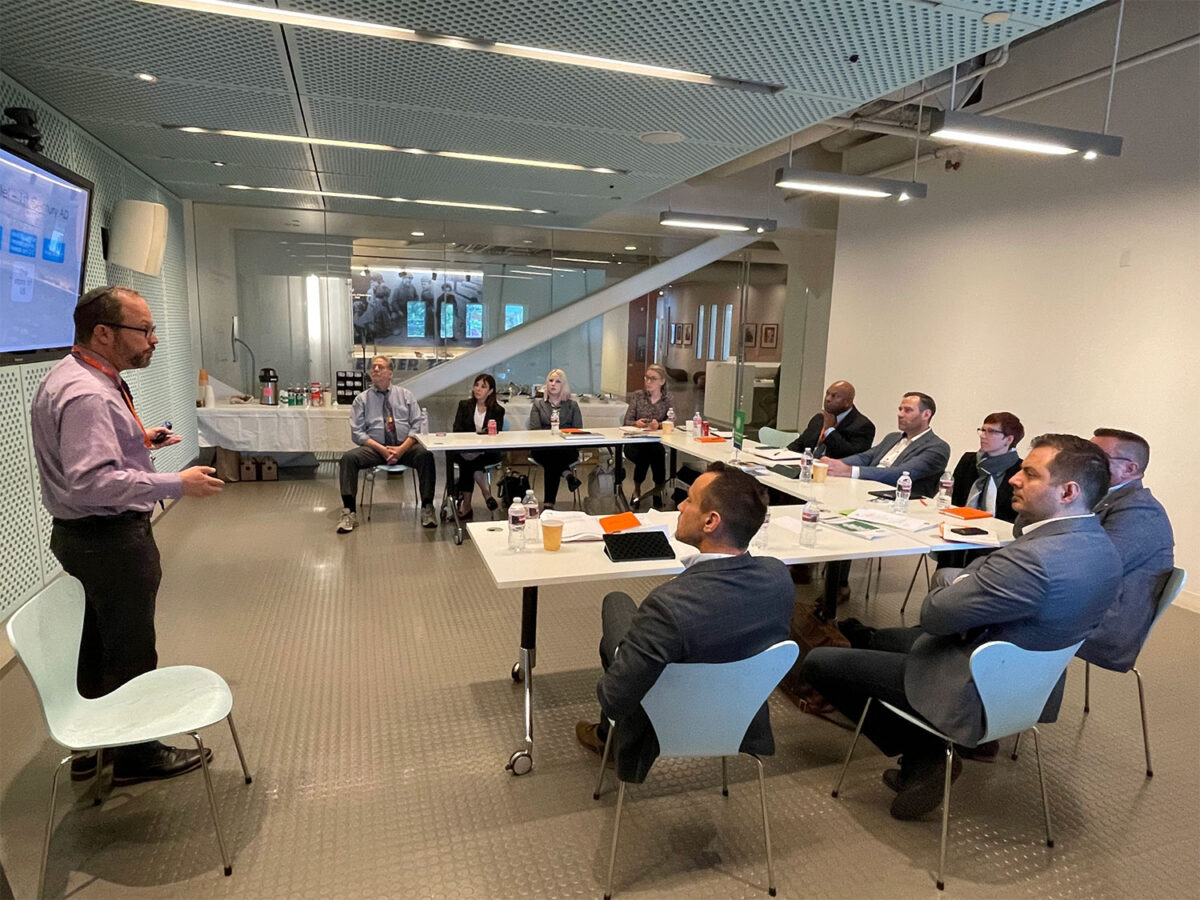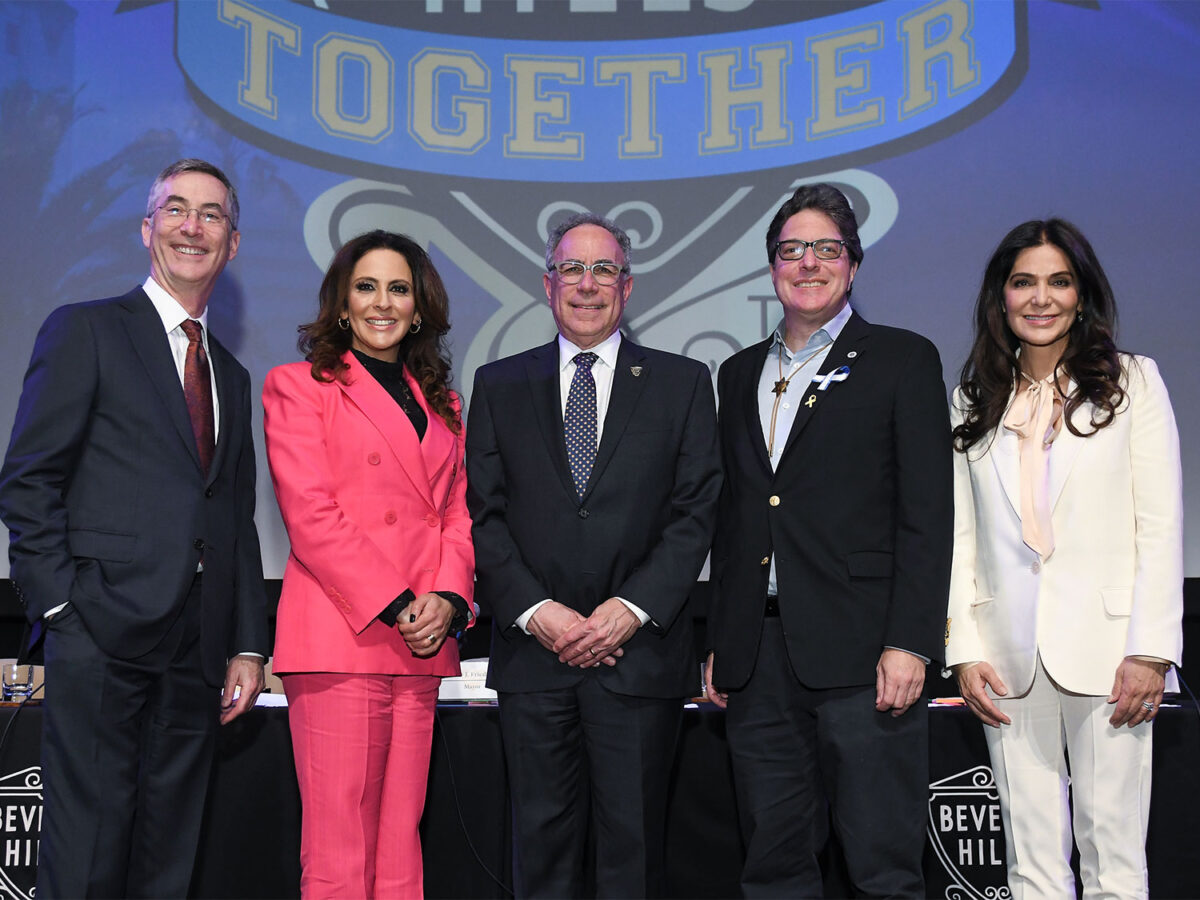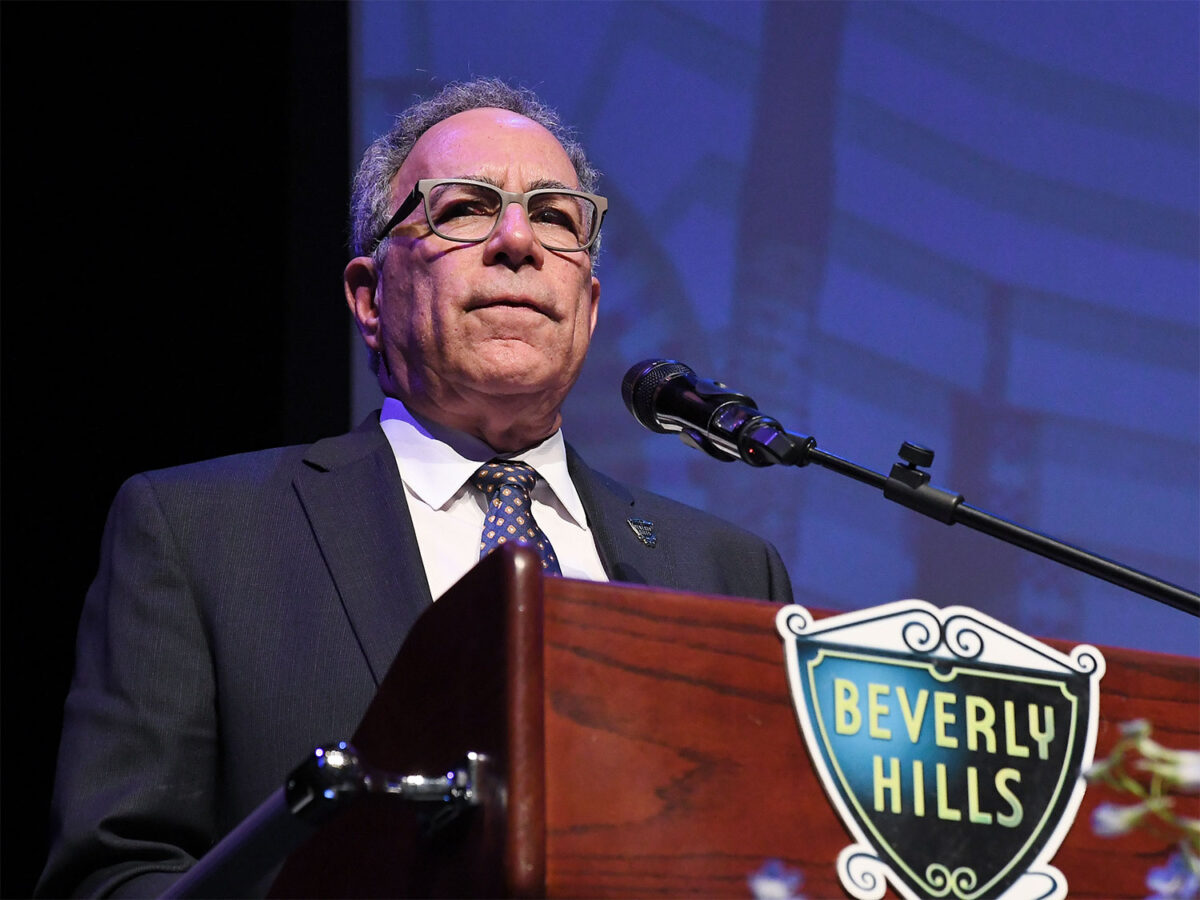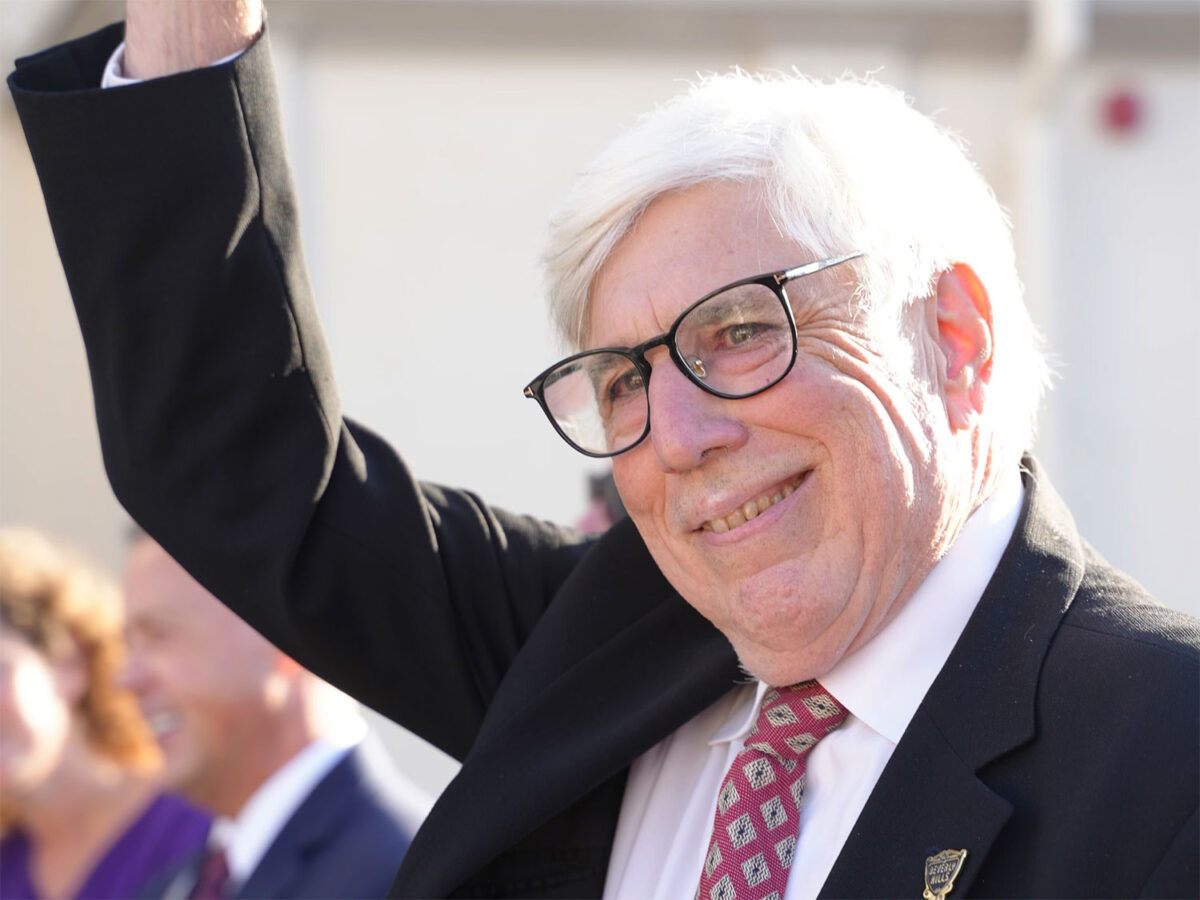As conflict continues to rage in Israel and antisemitic incidents continue to flare at home, the Beverly Hills City Council is exploring new ways to stand up for Israel and against Jew hatred.
On Nov. 7, the one-month anniversary of Hamas’s terrorist attacks, the council met and discussed several new initiatives. They plan to set up a ceremonial Shabbat table, create an art installation to remember the 1,400 people killed on Oct. 7 and organize an event to host family members of Israeli hostages. In addition, council members are considering passing a resolution condemning Southern California city councils that they believe have expressed “anti-Jewish racism.”
“Today we see a growing concern that transcends borders and affects not only our local community, but our nation as a whole,” said Councilmember Sharona Nazarian. “The message is clear: hatred knows no boundaries and can rapidly escalate.”
“Beverly Hills is a prominent and recognized American community with a large Jewish population that has a responsibility to serve as a voice,” she continued. “Now is a time to show the world that we continue to stand up against hate, discrimination, terror and antisemitism.”
The various initiatives were discussed during the afternoon study session and will be finalized through an ad hoc council committee.
The idea for the ceremonial Shabbat table originated in Tel Aviv, where on Oct. 20 a table was set up with over 200 empty chairs to signify the heartbreaking absence of the Israeli hostages. This touching installation was rapidly replicated by Jewish communities around the world, including in Beverly Hills, where Rabbi Yossi Cunin organized a Shabbat table and candle lighting on Oct. 20.
Council now seeks to have the city establish its own symbolic table outside of City Hall to honor the hostages and ensure their plight is not forgotten. During the Nov. 7 study session, Cunin thanked council members for visiting the table on Oct. 20 and for seeking to continue the initiative.
“Thank you, mayor and council members, for standing in light of all that is threatening our community,” he said. “I thank you for coming out there and lighting the candles. I know all around the world they saw those candles in Beverly Hills and that gave a ray of light that there’s going to be hope to see through this darkness.”
Council members also discussed a plan to create an art installation outside of City Hall with 1,400 flags representing the nationalities of each of the people killed on Oct. 7. They also embraced an opportunity to host a delegation of family members of Israeli hostages for a community event later this month.
Collectively, council members hope that these efforts will create space for community healing and an opportunity to continue raising awareness of the ongoing crisis.
“I want to use every one of these opportunities as an educational opportunity to let people know the significance of the massacre that occurred on Oct. 7 and let them know it’s impacting people till this day,” said Nazarian. “It’s not something that has passed.”
After study session concluded, the council returned to the subject of Israel-Palestine during their regular meeting.
Councilmember John Mirisch expressed a desire for the council to take action in response to resolutions recently adopted by the cities of Richmond and Cudahy criticizing the Israeli state and calling for a cease-fire in Gaza.
“The Israeli American Civic Action Network has described that resolution as entirely one-sided and containing terrorist organization disinformation presented as fact,” he said, referring to the Cudahy resolution. “The result is a resolution that is racist, inaccurate and filled with misinformation.”
“These are elected officials much like ourselves representing other communities in California, and we cannot let these lies stand,” he continued. “We must take action.”
Mirisch asked for a special meeting to be called to pass a resolution condemning these councils’ actions and council members agreed to try to find time next week.
“So many of us are carrying a tremendous amount of heaviness from what we are seeing and yet with all of that pain, we are trying to do good, to spread light and to use our voices, because back in the days of the Holocaust many people were silent,” said Councilmember Lili Bosse. “Now it’s up to us to use our voices.”



